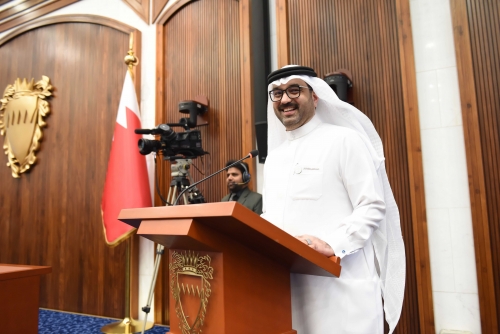MP eyes laws to back Bahrain’s carbon-free future and 30% emission cut target by 2035
TDT | Manama
Email: mail@newsofbahrain.com
Achieving carbon neutrality by 2060 and reducing carbon emissions by 30 per cent by 2035 are ambitious goals Bahrain is steadily pursuing through its national energy strategy, according to MP Ahmed Al Salloom.
However, these aspirations, he says, will require practical steps such as tax breaks, simpler licensing for renewable projects, and stronger waste management laws.
Al Salloom, Chair of Parliament’s Financial and Economic Affairs Committee, said Bahrain has made progress in tackling climate change, with several programmes already launched to support green initiatives and expand investment in sustainable industries.
The national energy strategy, he explained, serves as the foundation of these efforts, outlining the path to reduced emissions and a greener economy.
While recognising this progress, Al Salloom emphasised the need for further legislative action.
“We must attract investment into green projects through competitive tax incentives, simpler registration and licensing processes, and streamlined legal procedures to encourage international investors,” he said.
He added that clearer frameworks are needed to support renewable energy projects, particularly by improving the licensing process to make it more accessible and efficient.
Al Salloom also highlighted the urgent need for better waste management laws.
Regulations
He called for a comprehensive set of regulations to reduce waste, minimise its environmental impact, and encourage recycling.
Proposed measures include a classification system for recyclable materials, the establishment of recycling centres, and rules to limit waste production.
“Properly managing waste isn’t just about recycling,” he said. “It’s about reducing what we throw away and ensuring waste is disposed of responsibly. This requires a well-structured legal framework.”
The MP stressed the importance of learning from other countries’ experiences in transitioning to a green economy.
Environment
He suggested introducing legislation for energy efficiency and green technology, alongside a thorough assessment of Bahrain’s current economic impact on the environment.
He urged integrating sustainable development goals into national strategies to guide future projects.
Al Salloom also proposed significant support for research and development in clean technology.
He called for funding grants to support startups in green industries and suggested establishing innovation platforms to encourage both local and international companies to participate in Bahrain’s green economy.
“We need to make it easier for businesses, both local and global, to contribute to this shift by offering them the support they need,” he said.
To ensure Bahrain remains on track, Al Salloom recommended setting up a strong monitoring system to measure progress.
This would involve clear performance indicators, regular reviews, and adjustments to policies based on results.
“We need to know what’s working, what isn’t, and where we can improve,” he said.
Investment
He also urged directing investment into sectors such as sustainable transport and eco-tourism, which he described as critical to Bahrain’s transition to a green economy.
“Our goals are ambitious, but they are achievable with the right steps,” Al Salloom concluded. “Bahrain’s future depends on how well we tackle these challenges today.”
Related Posts

